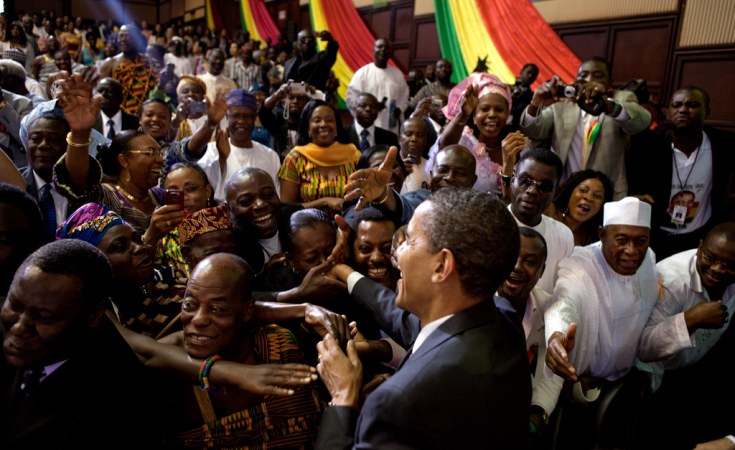In July of 2009, Barack Obama delivered his first speech as President in Ghana calling for change in Africa. Many African countries sought that initial visit from the new American leader, in particular Kenya. It turns out that President Obama’s timing for going to Kenya now, six years and many victories later, is perfect. He returns to the continent for the fourth time, this time a champion who is cementing his legacy as it pertains to Africa.
No one appreciates a winner more than a hometown, in this instance, an ancestral home audience.
President Obama implemented some key policies impacting Africa during his first term in office such as Feed the Future and the Young African Leaders Initiative, while upholding the initiatives of his predecessors such as the Millennium Challenge Account, among others. But during his second term, he put his stamp on U.S.-Africa policy in perpetuity.
Prior to leaving for the continent, he signed a ten-year extension of the African Growth and Opportunity Act of 2015 (AGOA) with bipartisan Congressional support on Monday, June 29, further demonstrating U.S. commitment to strengthening and expanding existing trade and investment ties with African nations.
In August of 2014, Obama convened the first U.S. Summit for African Heads of State and Government for over 51 African leaders—the largest and first such gathering resulting in pledges for investments in African countries by the private sector for over 33 billion dollars. In 2013, he initiated Trade Africa to increase internal and regional trade within Africa, and expand trade and economic ties among Africa, the United States, and other global markets. He also introduced Power Africa, an initiative joining the private sector, African governments and other donors, to increase the number of people with power in sub-Saharan Africa.
But President Obama’s policies are not related solely to addressing economic issues. The Obama Administration led the charge in combating the Ebola virus in Liberia, Sierra Leone and Guinea by sending personnel and resources, coordinating action by the international community, and by not engendering widespread fear and hysteria through his concerted efforts in response to the contagion.
Just as he has fought the spread of disease, he combated the spread of terrorism, while, at the same time, pushing for democratic governance, adherence to human rights, and equal rights for all segments of society.
The Obama victories affirm the beliefs of people from throughout America, Africa and around the globe who celebrated his becoming President. The expectations were high, perhaps too high, of Barack Hussein Obama.
His story is analogous to a great sports hero who comes into the game in glory, but then takes more than his share of punches and the naysayers start to believe he may not and cannot deliver.
But if the game were baseball, it is the seventh inning in the World Series, and the once-believed to be hero steps up and hits six home runs out of the park even before the game is over. With an inning and a half remaining, there is still time for more home runs, but the star status is solidly entrenched in the minds of his fans, both the loyal ones and the newly converted.
Bernadette Paolo is President and CEO of the Africa Society


